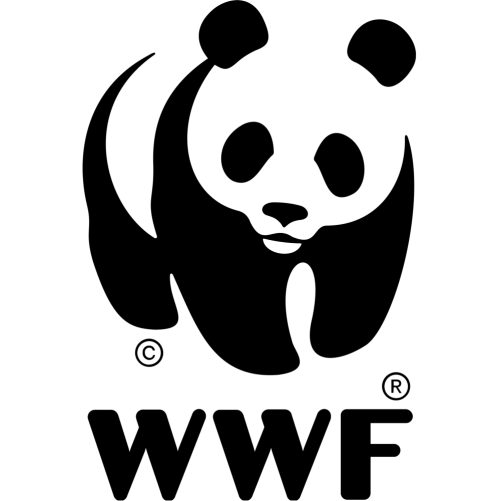
https://updates.panda.org/a-crucial-opportunity-for-change-following-the...
I write to you today with a deep sense of sadness about the impacts of the current COVID-19 health crisis – but also with a message of hope, and particularly a call to action. Together, we can learn from the new realities we face, charting a sustainable course towards a more stable, prosperous and healthy future for all.
Of course, we all face incredibly difficult times right now. As the COVID-19 outbreak has taken hold, lives have been lost, individuals left isolated, livelihoods affected and economies laid low. May I offer my heartfelt sympathies to anyone who has suffered the consequences of this terrifying pandemic – and my sincere thanks to the healthcare professionals and support workers who have put their lives on the line for us all, as well as the many people that, in spite of the risks, have continued to work in sectors ranging from food to utilities.
Making sense of the often chaotic consequences of this crisis requires level heads and sure hands. And we are fortunate to have many such people in WWF and across our partnerships, who have been steadfastly tackling the crises of climate change and nature loss for decades. This deep wellspring of experience combined with WWF’s collective spirit of collaboration – something we call ‘together possible’ – is helping to sustain our global network as it strives to continue our vital nature conservation work wherever possible.
You may have felt heartened by the scene of wildlife venturing in our deserted cities, but the impacts of the pandemic on conservation around the world, like so much else, have also been harmful – from the curtailing of critical wildlife protection efforts on the ground to dramatic falls in nature-based tourism revenue that many companies and communities rely on. But the main risk perhaps is not to learn what this crisis is so obviously telling us.
Time to learn lessons and put things right
Taking stock of how things stood before the pandemic struck, it was already clear that we were suffering the consequences of a deeply unbalanced relationship between people and planet, with deepening climate change and a spiralling loss of nature that threatened all our futures, coupled with deep inequalities in human society and the way we run and measure our economies.
The COVID-19 crisis has highlighted the extreme risks we are taking by degrading and destabilising nature – and the fact that protecting nature, and its amazing diversity of life, is protecting ourselves.
Scientists have agreed that COVID-19, like HIV, Ebola, SARS and MERS before it, is a zoonotic disease – a virus that has jumped from animals to humans. And the risk of a zoonotic disease crisis is exacerbated by many of the deep-seated problems WWF is already striving to address: the destruction of nature, the exploitation of wildlife, and the intensification of animal farming.
To help curb future pandemics, the trade and consumption of high-risk wildlife must be stopped. And we must also tackle the deforestation and environmental degradation that leads to risky interactions between humans and wildlife.
Already, we are seeing some positive signs. New WWF-backed research shows that there is overwhelming public support across Southeast Asia for a ban on illegal and unregulated wildlife markets. Many people are beginning to think that consuming wildlife is not a risk worth taking. This is a welcome mind shift in a region where escalating levels of wildlife consumption and trade had led to the sharp decline of many species. And we now need to see government action, building on measures already announced by the Chinese government.
But, of course, this is just the start. We also need a much broader nature-based ‘health insurance’ policy for humanity. From climate change and deforestation, to the way we farm animals for mass production, there are serious nature-related impacts on human health, including the development and transmission of diseases, that must be addressed. And, as we emerge from this crisis, we must not miss the opportunity for change, starting from how we invest in the recovery of our economy, embracing a just and green transition towards an economic model that values nature as the foundation for a healthy society and a thriving economy. Imagine if the trillion dollars of the recovery plans to support most impacted sectors would be invested in clean energy, regenerative agriculture, sustainable fishing and green infrastructures. We will accelerate the building of a safer future not just from future zoonotic pandemics, but also tackling other global threats like climate change, pollution and biodiversity loss.
This is our chance to put things right and rebalance our relationship with the planet. To absorb the lessons learnt from a virus. To call for nature-based solutions that enhance human health and safety. And to move to a ‘new normal’ rather than revert to the old ways that have failed us. One where job creation, economic development and social equality is fuelled by green development based on humility, respect and stewardship towards nature.
Now is the time to act. We are advocating for the closure of illegal and high-risk wildlife trade and consumption. We are engaging with governments, banks and economic sectors for national and global recovery plans that supports the economy, environment and society at the same time. And we are targeting the UN biodiversity summit, still scheduled for this September, as a key opportunity for world leaders to demonstrate their commitment to this new direction for people and planet.
This is not the time to point fingers but to collectively act for the common good of our planet, and our future. And, rest assured, WWF will continue taking action to bring people together, develop new partnerships and capitalize on this crucial opportunity for change.
- 1377 reads










Add new comment